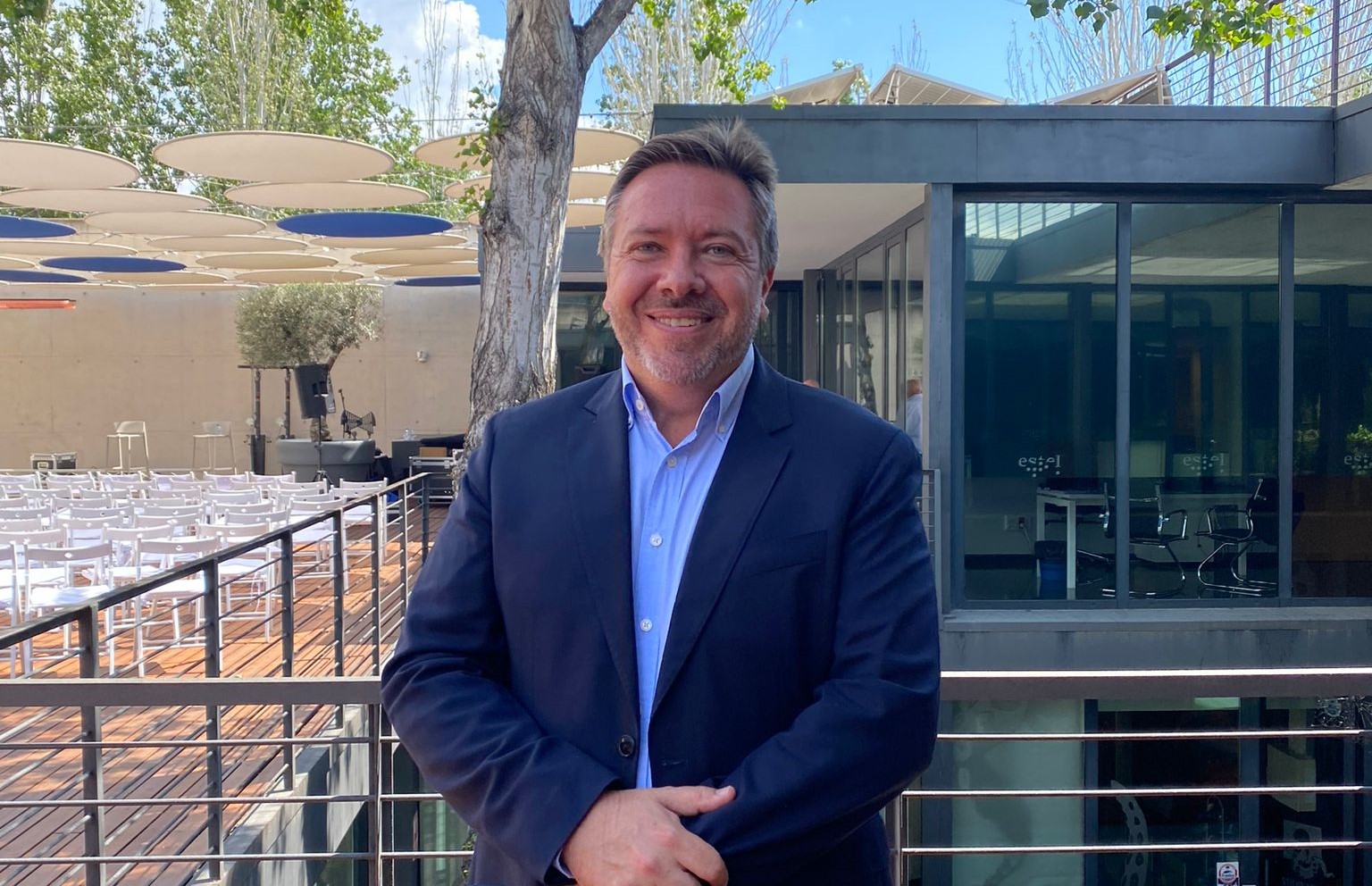"The challenge of business sustainability and emissions reduction requires a combination of measures including financial incentives, support for innovation, administrative simplification and human talent development."
Interview with Lucas Pastor, president of the Balearic Islands Ecological Transition Cluster
The Ecological Transition Cluster of the Balearic Islands was born in 2022: can you explain to us its purpose, who are its members and what are its current lines of work?
The TEIB Cluster was founded at the end of 2022 with a clear mission: to bring together the public-private ecosystem of the Balearic Islands to promote the ecological transition by improving communication, coordination and collaboration between these actors. The Balearic Islands needed a grouping of companies, knowledge centers, public institutions and social agents to address the environmental and climate challenges we face.
Currently, the TEIB Cluster brings together a total of 32 members representing companies, public and private research and training centers, professional associations and public bodies involved in the implementation of innovative joint projects in the field of ecological transition. Although the participation of SMEs is the majority (about 70%), the critical mass of the TEIB Cluster represents a turnover of over 1,200 million euros, representing more than 4% of the Balearic GDP and more than 30% of GDP in the sector.
The combination of tractor companies with innovative SMEs and the participation of knowledge agents (universities and expert groups) facilitates the approach of innovation projects around the strategic areas of the association: renewable generation, energy storage, energy efficiency, sustainable construction, sustainable mobility, circular economy, blue economy, digitalization, smart resource management and electrification.
The challenge of corporate sustainability and emissions reduction is a major challenge in today’s world. what changes do you consider can’t be postponed in the Balearic Islands in this regard in order to achieve maximum efficiency, optimization of resource use and the widespread use of renewable energies?
In the current context, sustainability has positioned itself as a strategic aspect in the business and social environment. Both at government and business level, strategic plans are designed in which sustainability improvement plays a crucial role. However, in order to move towards a more sustainable model, it is crucial to implement a series of fundamental changes.
Firstly, it is necessary to provide greater incentives for investment in infrastructure and renewable technologies. This implies not only financially supporting the adoption of clean energy, but also creating an enabling environment for the development of large renewable energy, resource efficiency and circular economy projects. These projects not only contribute to reducing greenhouse gas emissions, but also generate employment, contribute to the energy sovereignty of the Balearic Islands and promote local economic development.
In addition, it is essential to support the innovative ecosystem, providing resources and funding for research, development and innovation in local companies. In a region that has not traditionally stood out for its investment in R&D&I, fostering collaboration between companies, research groups and universities can generate significant advances in the search for more efficient alternatives.
Simplifying administrative procedures and breaking down legal barriers is another crucial aspect. The experience we have in the TEIB Cluster thanks to the Clean Energy For European Islands (CE4EUI) project is that green transition projects often face bureaucratic and legal obstacles that hinder their implementation. Streamlining administrative processes and eliminating obsolete or contradictory regulations is necessary to facilitate the success and viability of projects.
Furthermore, to boost business sustainability, it is essential to increase the capacity to generate, attract and retain talent in Balearic companies. This involves not only training employees in areas such as the installation of renewable systems, but also attracting professionals with experience in areas such as environmental management, digitization of resources (energy, water and waste), energy efficiency and the development of clean technologies. Human talent is an essential asset in the search for innovative solutions and in the implementation of long-term sustainability strategies.
In short, addressing the challenge of corporate sustainability and emissions reduction requires a combination of measures that include financial incentives, support for innovation, administrative simplification and human talent development. Only through a comprehensive and collaborative approach will we be able to achieve a more efficient, equitable and environmentally friendly model.
Related to the previous point, what are the services that are currently the focus of the cluster’s activity?
The services that currently focus the activity of the TEIB Cluster are closely linked to the strategic areas of action that we have identified as priorities to promote the transition to a more sustainable economic model in the Balearic Islands. These services cover a wide range of activities and projects aimed at fostering innovation, collaboration and the development of sustainable solutions in various sectors.
Firstly, we focus on facilitating collaboration and knowledge exchange among our members, providing meeting spaces where they can share experiences, best practices and opportunities for collaboration. This includes organizing events, working group meetings, workshops and roundtables where relevant topics for the ecological transition are addressed.
Another important service we offer is the promotion of collaboration in R&D&I projects in key areas such as renewable generation, energy efficiency, sustainable mobility, circular economy and smart resource management. We promote the creation of consortiums and alliances between companies, research centers and universities to develop joint projects that drive innovation and the adoption of clean technologies.
In your opinion, and also from your technical perspective as director of business development in companies in the engineering and construction sector, what aspects do you consider decisive in the ecological transition of the Balearic Islands at the moment?
At present we see that in the Balearic Islands there is a strong commitment on the part of the public administrations to try to achieve very ambitious decarbonization objectives in a relatively short period of time. The challenge is that these objectives can only be achieved through the effective development of ecological transition projects that allow progress towards them.
At Estel Ingeniería y Obras, a Majorcan company with almost 30 years of experience and international scope, we are very focused on the development of this type of projects. In fact, we have our own brand called Estel Green that focuses on applying the most innovative technologies to improve environmental sustainability in all types of buildings and infrastructures.
In the green transition projects promoted by Estel Green for the Balearic Islands, we mainly encounter two problems: the lack of simplified processing mechanisms for greater agility in the necessary permits and the complexity of the public aid system.
If the Balearic Islands were able to solve these two problems, in addition to implementing the changes mentioned above in terms of greater incentives, the promotion of innovation and the retention of talent, it would be possible to carry out major projects that would enable the ambitious objectives of decarbonization to be achieved and also position the islands globally as a sustainable tourist destination.
Among the most immediate challenges of the organization, what would you say are the most relevant ones to be taken into consideration for the coming years?
The first objective of the grouping that we established was the entry of the association into the Register of Innovative Business Groupings. After gathering all the required critical mass and making a strategic approach to the development of the cluster in the next 4 years, we have recently been able to meet this first milestone. This allows its associates to have access to specific calls for grants to finance collaborative innovation projects in our sector.
In addition to the above, given the short history of our organization, as a cluster we must face several challenges, among which I would highlight in the short term: the consolidation and growth of the association, the realization of R+D+i projects between partners and increasing social awareness of the importance of the ecological transition in the Balearic Islands.






































